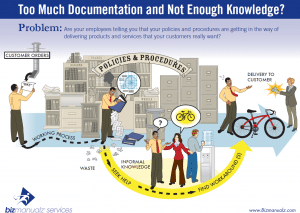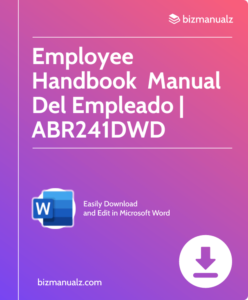What Makes an Effective Employee Policy?

In any organization, having comprehensive and well-crafted employee policies is essential for maintaining a productive and harmonious work environment. Effective employee policies serve as a foundation for establishing clear expectations, promoting consistency, ensuring compliance with legal regulations, and nurturing a positive company culture. In this article, we will explore the key elements that make an effective employee policy, providing policy examples along the way.
A Guide to Crafting Effective Employee Policies
There are many elements to successfully crafting effective employee policies. They include clarity and accessibility, alignment with organizational values, flexibility and adaptability, consistency and fairness, compliance with regulations, and also regular review and communication. Each element alone is not that difficult but taken together, it can be difficult to accomplish. Let’s look at each one and their examples.
Clarity and Accessibility
An effective employee policy should be written in clear and concise language that is easily understandable by all employees. Ambiguity and complex jargon should be avoided to prevent confusion. Policies should be readily accessible to employees, typically through an online platform or an employee handbook. For example, Google’s “Code of Conduct” is written in simple language and available to all employees on their internal website, ensuring clarity and easy access.
Alignment with Organizational Values
Employee policies should reflect the organization’s core values and overall mission. Policies that align with the company’s values contribute to a cohesive work environment and promote a sense of purpose among employees. For instance, Patagonia, an outdoor clothing company, has a unique policy that allows employees to take time off to participate in environmental activism, demonstrating their commitment to sustainability and social responsibility.
Flexibility and Adaptability
An effective employee policy should be flexible enough to accommodate evolving needs and changes within the organization and the industry. Policies that are overly rigid can hinder innovation and growth. Netflix’s famous Unlimited Vacation policy, for example, grants employees the freedom to take as much time off as they need, as long as they maintain their productivity and meet their goals. This policy emphasizes trust and empowers employees to manage their own work-life balance effectively.
Consistency and Fairness
Consistency and fairness are crucial elements of an effective employee policy. Employee policies should be applied consistently across all levels of the organization, without favoritism or bias. When policies are fair and impartial, employees feel valued and trust is fostered. To promote fairness, companies often have anti-discrimination and harassment policies in place, such as Microsoft’s “Global Human Rights Statement,” which explicitly prohibits discrimination based on various protected characteristics.
Compliance with Legal Regulations
An employee policy should comply with local, state, and federal laws to protect both the organization and its employees. Compliance ensures that policies are legally defensible and minimizes the risk of costly lawsuits. Examples of policies aimed at compliance include those related to workplace safety, data protection, and anti-corruption. Many companies, like Intel, have comprehensive policies in place to protect sensitive data and ensure compliance with privacy regulations.
Regular Review and Communication
To remain effective, employee policies should be periodically reviewed and updated as necessary. Organizations evolve over time, and policies must adapt accordingly. Regular communication with employees is vital to ensure that they are aware of any policy changes. Transparent communication channels, such as team meetings, newsletters, or company-wide emails, can be utilized to convey policy updates. Airbnb maintains an open dialogue with employees through their “Employee Resource Center,” which includes up-to-date policies and resources.
Writing an Effective Employee Policy
Writing an effective employee policy requires careful consideration of clarity, alignment with values, flexibility, consistency, legal compliance, and regular review. By implementing employee policies in your employee handbook that prioritize these elements, organizations can create a positive work environment, foster employee satisfaction, and reduce legal risks. Remember, the ultimate goal of effective employee policies is to provide guidance and support for employees while aligning with the organization’s overall mission and values.
















Leave a Reply